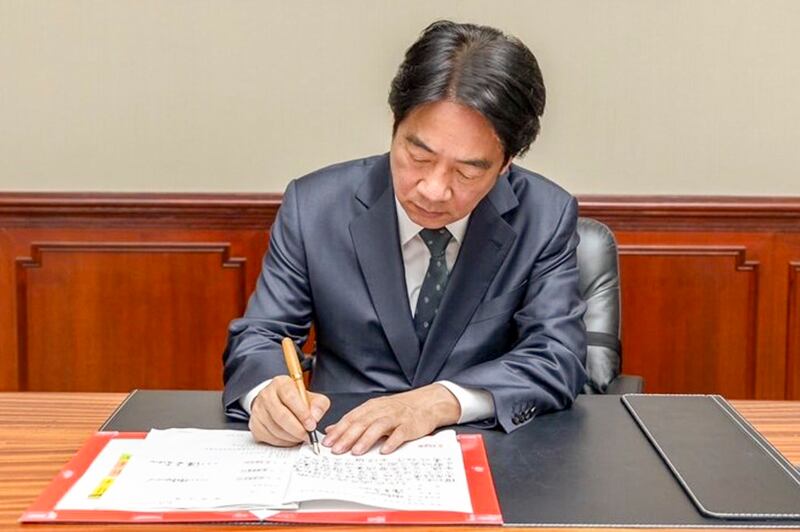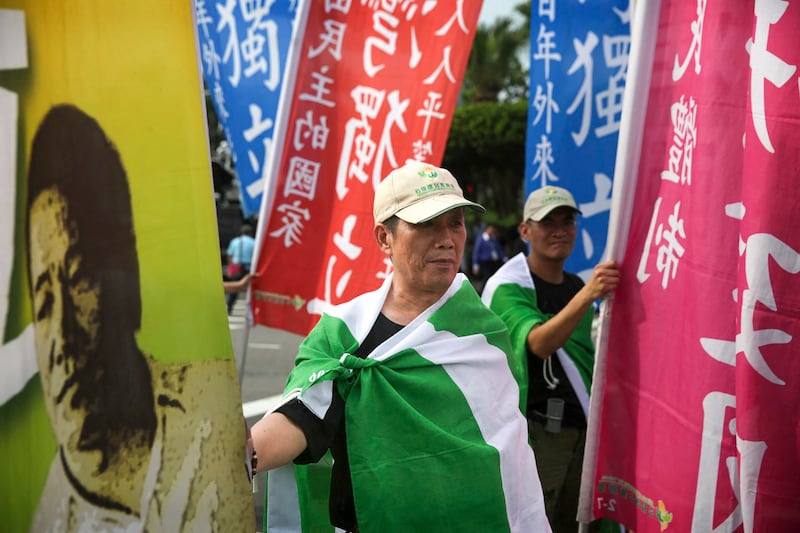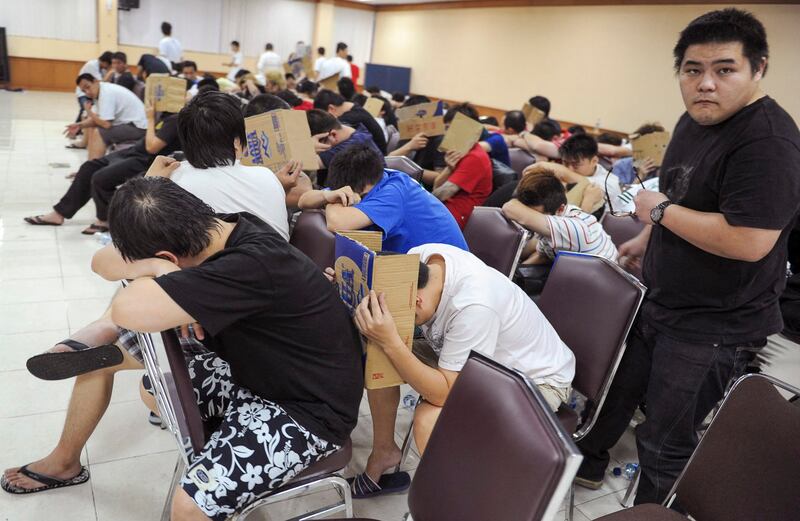Taiwanese President Lai Ching-te hit out on Monday at Beijing's warnings of prison and even the death penalty for supporters of Taiwan's independence, saying China has no power to prosecute people on the island.
"I want to stress that democracy is not a crime, whereas autocracy is," Lai told a news conference in Taipei. The Chinese Communist Party had "no right nor jurisdiction" to punish Taiwanese people for expressing their opinions, he said.
"According to China's logic, not supporting unification equates to supporting Taiwan independence," Lai said. "So whether you are for Taiwan, the Republic of China, or the Republic of China, Taiwan, in their eyes these all mean supporting Taiwan independence."
Taiwan is currently ruled as the 1911 Republic of China, a sovereign state formed after the fall of the Qing Dynasty, and whose Kuomintang government fled to the island after losing a civil war to Mao Zedong's communists in 1949.
While Beijing has never ruled out a military invasion to enforce its territorial claim on Taiwan, it has more recently vowed to achieve " peaceful unification" with the island through propaganda and other forms of pressure.
Lai was responding to China's announcement on Friday that supporters of independence for Taiwan could be tried in absentia and sentenced to death for "splitting the country," in a move designed to step up pressure on the democratic island, which has never been ruled by the Chinese Communist Party.

China's law enforcement agencies and courts should "severely punish Taiwan independence diehards for the crimes of splitting the country and inciting secession ... and resolutely defend national sovereignty, unity and territorial integrity," a directive issued Friday by the Supreme People's Court and four law enforcement agencies said.
While those agencies have no jurisdiction in Taiwan, the directive targets anyone working to further formal independence for a Republic of Taiwan, including holding a referendum, promoting the island's membership in international organizations.
Higher risks
Analysts said the move could make it much riskier for Taiwanese to travel to China or to countries willing to engage in extradition or unofficial renditions there.
It has also prompted warnings of similarities with attempts to enforce Hong Kong's national security legislation far beyond the city's borders.

International law scholar Soong Cheng'en called for a diplomatic and security response to the threat.
"Now that China is weaponizing the law, Taiwan needs to be active in setting up diplomatic and security networks along the lines of its response to the Article 23 legislation or the Hong Kong National Security Law, so that the international community understands that any prosecutions are an abuse of its power and a violation of international human rights treaties and international law," Soong told a symposium on Monday hosted by the China Asia-Pacific Elite Exchange Association.
"Other countries should not become China's accomplices," Soong said.
Wu Se-Chih, a researcher at Taiwan's Cross-Straits Policy Association, said the risk of Taiwanese independence activists being sent to China under the new measures was real, adding that 69 countries have existing mutual assistance treaties with China covering civil and commercial law and criminal justice.
"The fact that they have signed a judicial assistance agreement doesn't necessarily mean that these countries will carry out renditions to China," he said. "That will depend on how friendly their ties with China are."
He said Thailand, Malaysia and Vietnam have all sent Tibetan independence activists to China using such agreements, however.
Exporting its brand
Lin Ting-hui, a former deputy secretary-general of the Taiwan International Law Society, warned that Friday's announcement is further evidence that Beijing wants to export its authoritarian model of government to the rest of the world.
"China wants to unilaterally promote its domestic legislation to the rest of the world," Lin said. "This will have a huge impact on human rights, and on international law in the international community."
The U.S. State Department said the American Institute in Taiwan, the de facto embassy in the island, had met with representatives from the Taipei Economic and Cultural Representative Office in the United States in talks that "focused on expanding Taiwan’s meaningful participation in the United Nations system and other international fora."

"Our support for Taiwan’s meaningful participation in international fora is in line with our one China policy, which is guided by the Taiwan Relations Act, the three Joint Communiques, and the Six Assurances," the State Department said in a June 22 statement.
"U.S. participants reaffirmed the United States’ longstanding commitment to Taiwan’s meaningful participation in the UN system and the international community, including at the World Health Organization and the International Civil Aviation Organization," it said.
Since President Tsai Ing-wen swept to a landslide victory in 2016 promising to stand up to Beijing and seek a more active role in world affairs, China has used its considerable influence at United Nations agencies to ensure that Taiwan, now ruled by the pro-independence Democratic Progressive Party, is excluded from participation, citing its claim on the island.
President Lai, Tsai's successor, has called on Beijing to stop threatening his country, and respect the will of its 23 million people, the majority of whom have no wish to be ruled by the Chinese Communist Party.
Sending a message
Wang Chih-sheng, Secretary General of the China Asia-Pacific Elite Exchange Association, said the State Department response sent an important message.
"They are telling Beijing that even if there is a so-called [Chinese law banning] Taiwan's independence, the United States and other allies still support Taiwan's participation in the international community," Wang said.
He said the U.S.' interpretation of its own laws has loosened considerably in recent years, in line with widespread popular support in Taiwan for a greater role in international agencies.
Lai also vowed on Monday to seek a ruling from Taiwan's Constitutional Court on recent legislation passed by pro-China parties that greatly expand the powers of its parliament to summon and sanction officials.
Lai said he doesn't support the "unconstitutional" expansion of legislative power, the island’s Central News Agency reported.

"Any reforms to the Legislative Yuan must comply with the law and the Constitution," he said, citing concerns that a recent package of legislative amendments could infringe people's right to privacy, endanger commercial secrets and freedom from being compelled to speak.
He said the expanded parliamentary powers to command the president to address the legislature and answer questions were an "attempt to change the constitutional design of responsible government."
Currently, the president isn't accountable to the Legislative Yuan and isn't required to deliver an address, but may choose to do so.
Lai said he was willing to address the legislature if it was deemed constitutional by the court.
The Legislative Yuan last Friday voted down a request from the island's cabinet to reconsider the recently passed amendments to the Law Governing the Legislative Yuan's Power and the Criminal Code.
Translated by Luisetta Mudie. Edited by Malcolm Foster.
